A few months before the French presidential election, in a Brexit and Trump world, i-D France travelled to the four corners of the nation to question those most affected by what the future of their country holds: 18 to 25-year-olds. Because there will be no future at all without them, whether they’re from the right, from the left, the extreme, or center, whether they seek out the ballot boxes or keep their distance, they are what comes next. Here, they share their indifference and involvement, their fears, and above all else, their rather wise optimism — proof that even when the world feels close to implosion, there is still hope in the next gen.
Florian Waldmann, 18, photographer and Matéo Garnier, 18, friend. S Terminal between St Ouen and Pigalle, Paris
What are politics for you?
Matéo: It’s something necessary for a country to function but which always ends up disappointing.
Will you be voting?
Matéo: Yes, to block the National Front.
What’s it like being 18-years-old in France in 2017?
Florian: It’s cool. In my situation, it could be better, but I don’t expect to stay in Paris. I want to travel and life here doesn’t really do it for me.
Matéo: I think that we’re part of a less curious generation than our predecessors, more driven by social media which creates ties as much as it destroys them. Lots of people create images of themselves which aren’t always their own.
Who would be the President of your dreams?
Florian: Travis Scott.
If you could change one thing in the world today, what would it be?
Matéo: In France, racism. What I like about Paris is when I get the Metro you cross paths with so many races. There’s a social diversity and yet, there’s still too many people who can’t manage to accept that and they fall into the trap of intolerance. Diversity and differences is our strength.
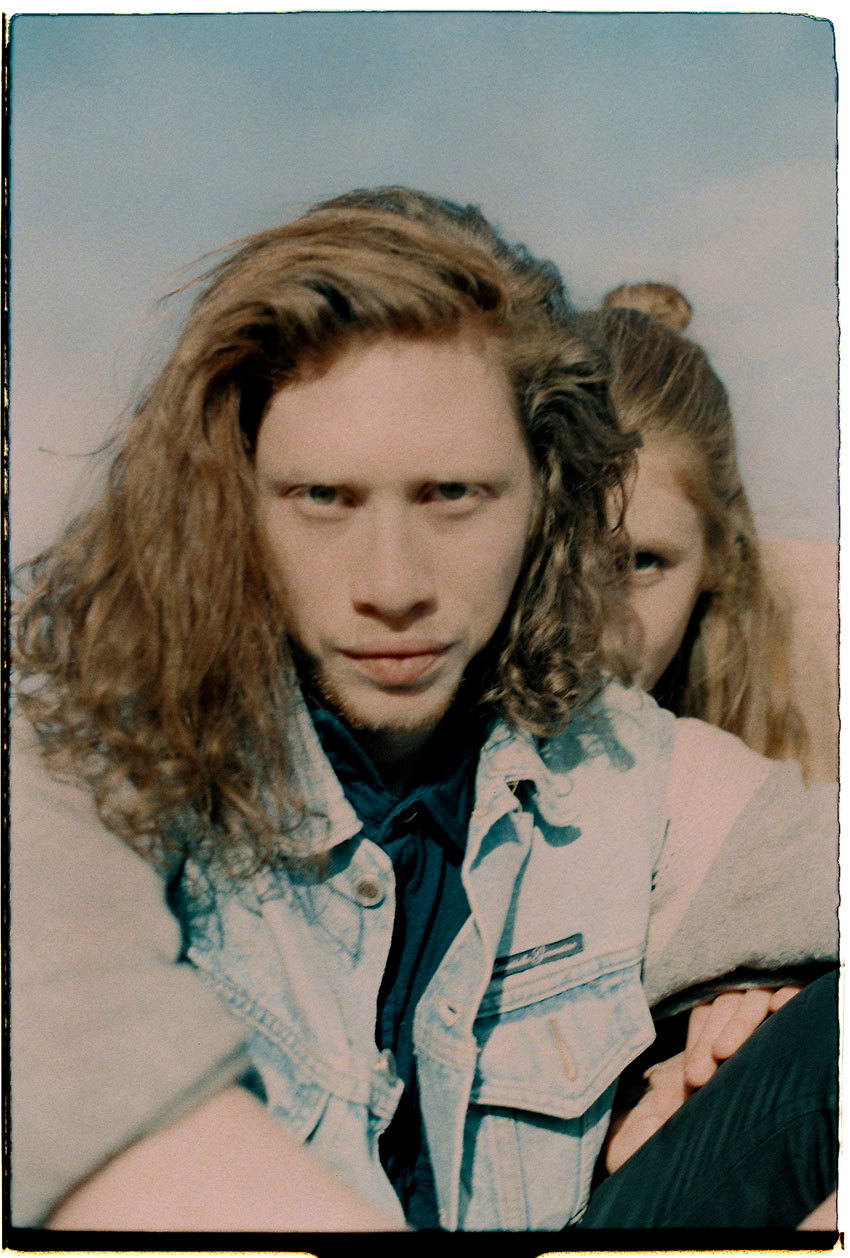
Suaud Nikita, 23, student at ISDAT, Toulouse
What is your definition of politics?
I’d speak about politics more in the sense of Politeia and Politikos which define the path which society should take. But there is a certain ‘politics’ which exists in the sense of Politikè which refers to the practice of power and the uprisings that it engenders. Government without a fight against power would be the image of Siena between 1287 and 1355. Nine people were drawn at random to govern the city for two months each, after which they would have to wait twenty months before participating in a new draw: that is politics.
How do you see the French elections ending up?
I hope not like they usually do. No matter what happens, there will be a ruckus.
What words are repeated most by politicians, in your opinion? What do you think of them?
Unemployment, transition, instability, immigration, France, the French; the comedy of repetition always deceives people.
Are you planning to vote?
Yes. The right to vote is something to keep but must be amended with time, the function of a blank vote should be reviewed, and I’ll vote Mélenchon, for his economic and environmental policy, his solution for redistributing wealth, his poise (necessary for foreign politics), the Sixth Republic, and his transparency.
What are the major problems facing your generation in your opinion?
Distraction without fun, laziness, information overload, lack of depth, and ridiculously cute cats.
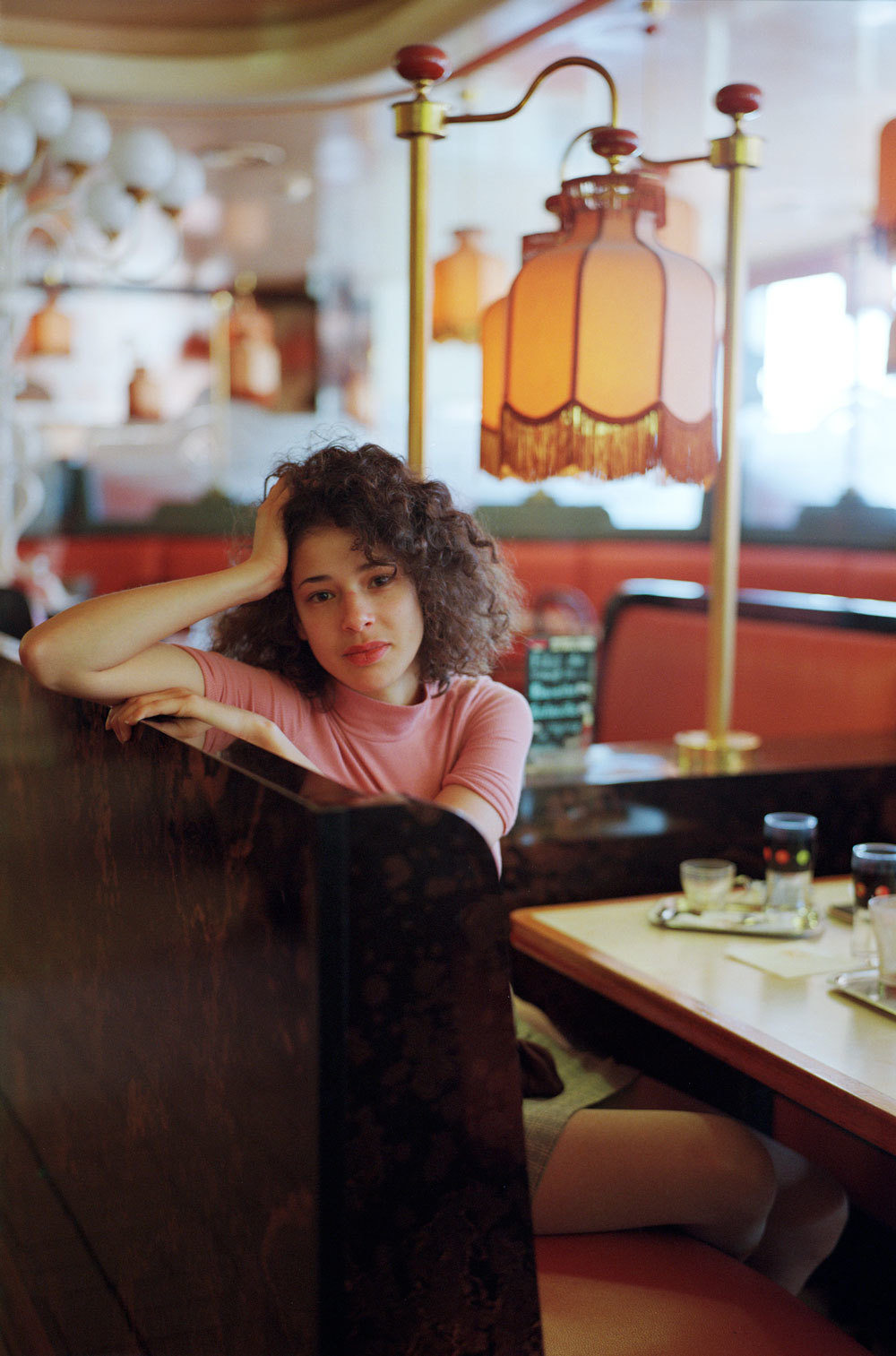
Farah Taouza, 22, student at ENSBA, Paris
What are politics for you?
A football match, except that no one really knows how to inflate the ball.
What words are repeated most by politicians, in your opinion? What do you think of them?
Today, tomorrow, France! This reassures lost fools perhaps. But tomorrow doesn’t exist. France for me isn’t more than an idea and who knows what today is.
Are you planning to vote?
Probably, by obligation. But for no one. And to fulfill your duty for the sake of fulfilling your duty is a bit stupid when you think about it. To undertake and take the time to say that you’re not going to vote is perhaps also a way of making a stand.
What is the best way to revolt, to get involved in 2017?
To get involved with oneself, in your own personal projects, and for people you want to make and share things. And then, disengage from rights such as voting, which poses as some sort of moral duty yet amounts to nothing more than an insignificant number. After all that, if you want to vote for Mélenchon because you believe in it and it makes you happy, why not!
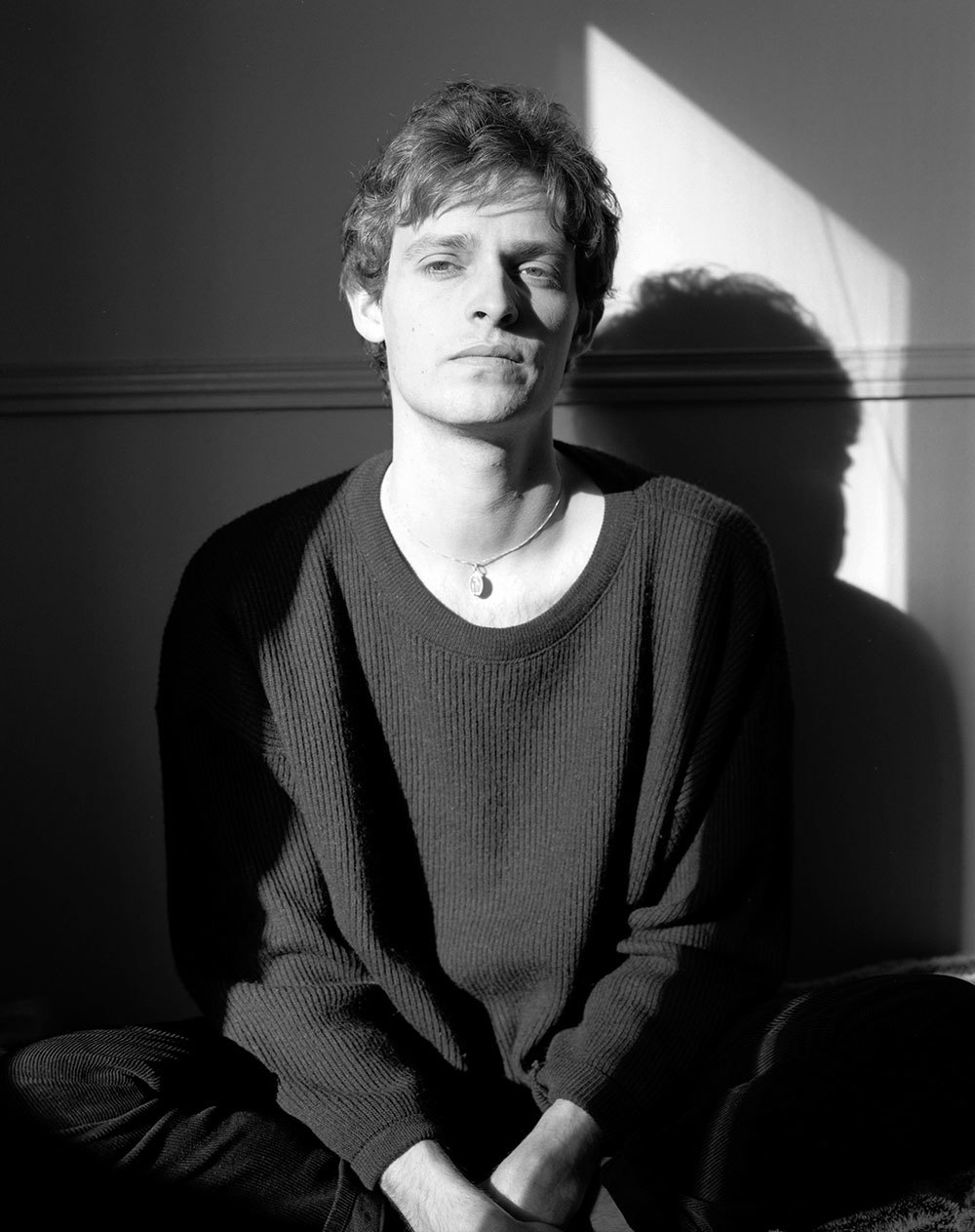
Maximin Leclaire, 24, studying biology/environment, Rennes
What are politics for you?
Interaction with my environment and people in a society.
Have recent events in England and the US made you want to become politicized?
I’ll go vote no matter what happens. However, it’s a bit shocking to see such unhealthy things happen.
How do you see the French elections ending up?
I’m basically a pessimist. I find it to be a bit of a circus. Even if there’s some interesting bits. There’s lots of gossip, drama, a bit like the cover of People magazine.
Are you planning to vote?
Yes of course. But I don’t know yet who I will vote for. I’m prioritizing the environmental and social side of things. It’s really equality that I’m looking to find in a policy and its implementation in society.
What are the major problems facing your generation in your opinion?
We have high-performance means of communication but this disrupts real interaction. We don’t talk anymore unless it’s by proxy through screens. More personally, I’m frustrated for having studied what I liked, leaving me at the bottom, without being able to perform my expertise or be at all useful to society. Because there’s no jobs.
What hopes politically do you envision for the future of France?
I feel that politics places more and more importance on the environment and I think that it’s good they’re taking it into account. I think we shouldn’t even need to have a Green Party. We should all be Greenies every day.
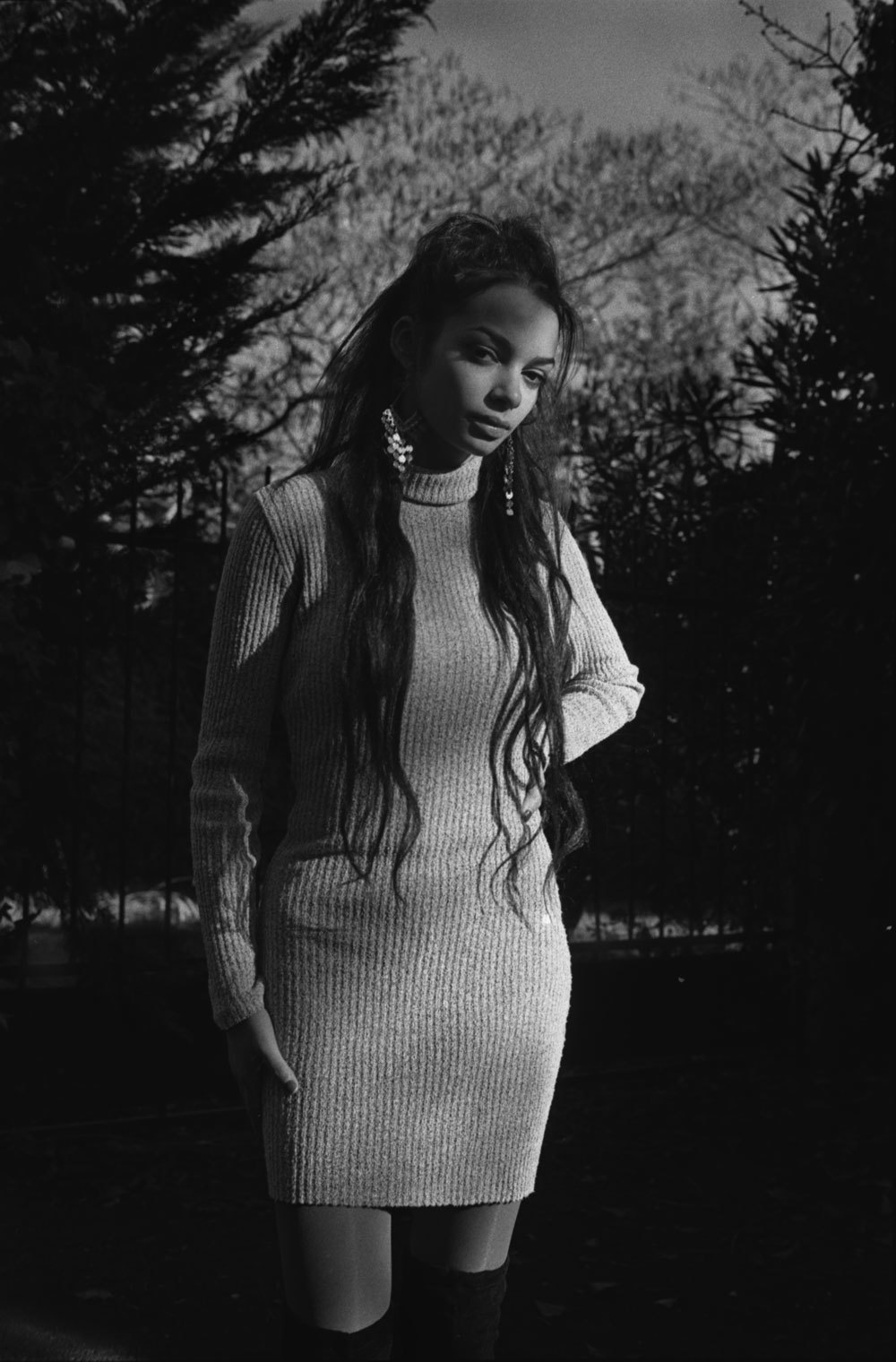
Sarah Gimenez, 19, photographer’s assistant, Bayonne
What are politics for you?
Something complicated.
What words do you hear most during political discussions?
“I promise you.” I think those words are spoken by people who are looking solely for power. That there doesn’t really interest me right now.
If you could choose the next president of France, who would you choose?
I dream of seeing President Cyril Hanouna because he’s close to the people.
What does it mean to be 19 in 2017?
Being 19, it means having lots of trouble finding work. Even a degree doesn’t guarantee a secure future in the workforce anymore.
What would you say is the best way to revolt, to get involved in 2017?
It’s not in my nature to revolt.
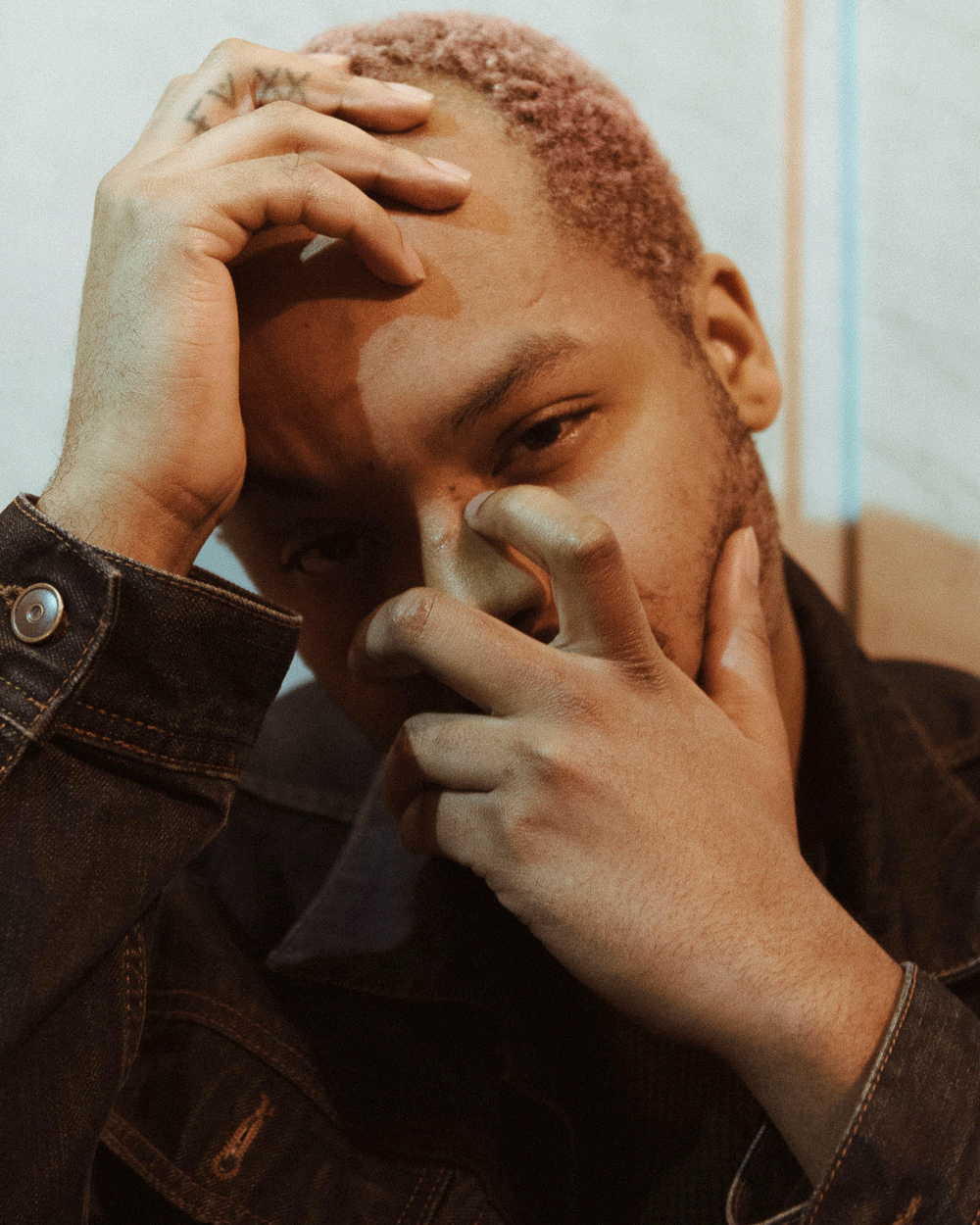
Jordan, 25, Rapper, Lyon
Are you planning to vote?
Nope, don’t plan to vote. I don’t care, a human isn’t made to control other humans, power isn’t controlling a country, it is to control oneself. Once you become master of yourself, you understand that the world is big and if you don’t want to live in a country or wherever the fuck, you have to work hard and travel. If the goal was to stay in a country and go round in circles, there would be no planets, no universe, and no galaxies.
Do you feel militant?
Basically, I’m not about to fight for people who aren’t worth it, and if ever, add that to my list of hypocrisies. Because I can be like lots of people. Our flaws define what we are not.
How do you imagine the future of France?
The future is me, so it’s gonna be really handsome, with less things, which is maybe what will make them open their eyes to their wealth. I’m not speaking to you about petrol or gold. Everything has its own cycle, that of love, there’s highs and lows, right now there’s people who’re either perseverant or not, people who’re happy or not.
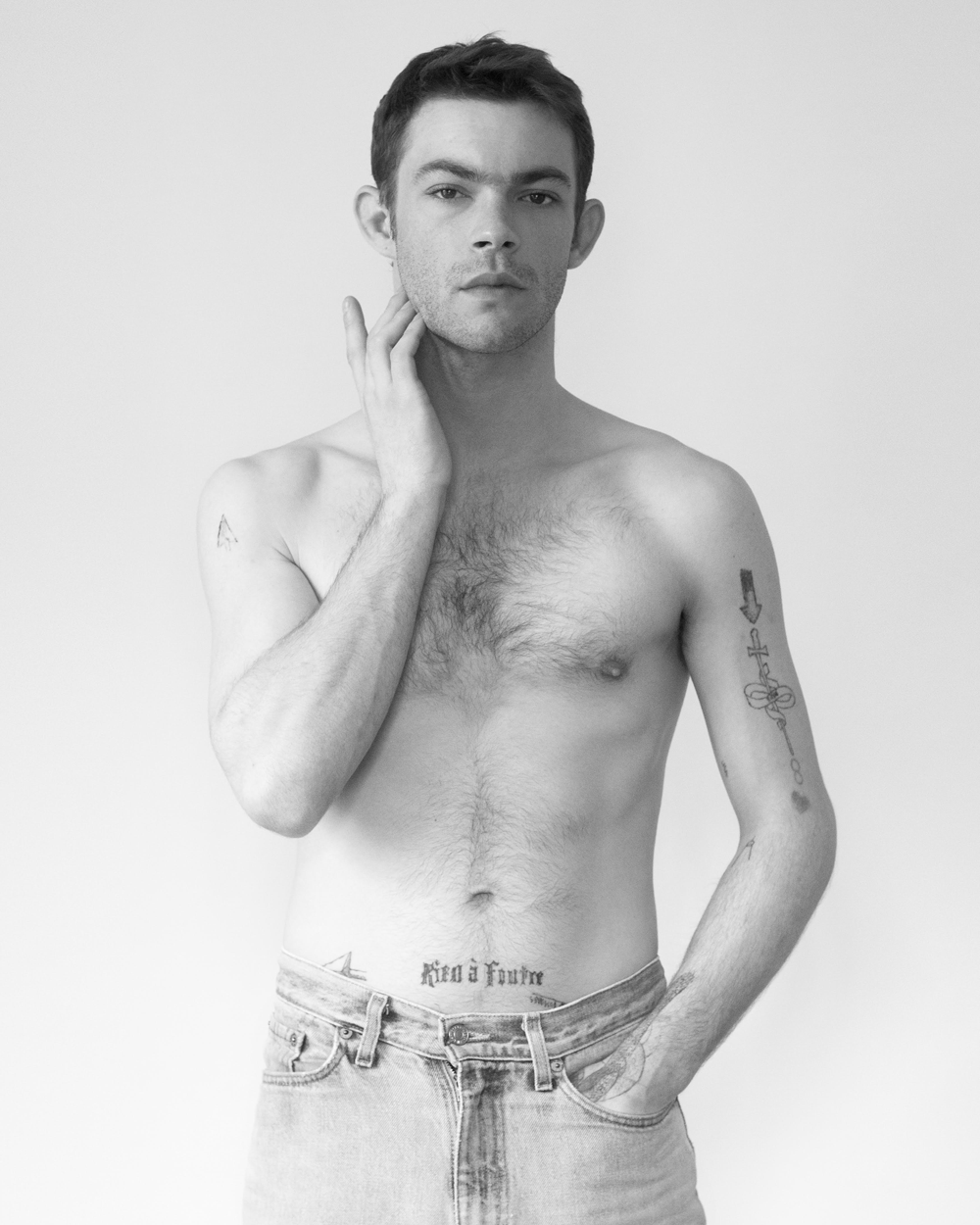
Félix Maritaud, 24, actor, Paris
Do Brexit and Trump’s election make you want to politicize?
No, I’ve always been politicized, however these type of events which I try to watch from a distance make me want to take up the fight sooner in my poetry and my art.
What words do you find are repeated most by politicians?
“Growth,” which is the fantasy of the 21st century. International politics are only interested in increasing profits, which are already dirty over time, this need for frenetic pace is manifested in a lack of wisdom of the political and economic class. There’s a rhythm, time passes on earth at its own pace, and through this compulsive need for growth we’re depleting our planet, like we’re ungrateful adolescents.
How do you see the French elections turning out?
I find the campaign very aggressive. All this media coverage clogs the political discourse a bit, rendering it very closed, so no one is interested in who has specific facts here or statistics there. There’s a serious need for new structures, more space, more openness.
Will you be at the ballots in May?
No. I don’t really believe in this symbolic involvement in political life. I find it obsolete, old and not adapted to our society of flux, of migration and transience. Most recently with the extreme media noise, I see the elections as a vehicle for hatred of one another. I don’t believe in hate, I don’t want to participate in it.
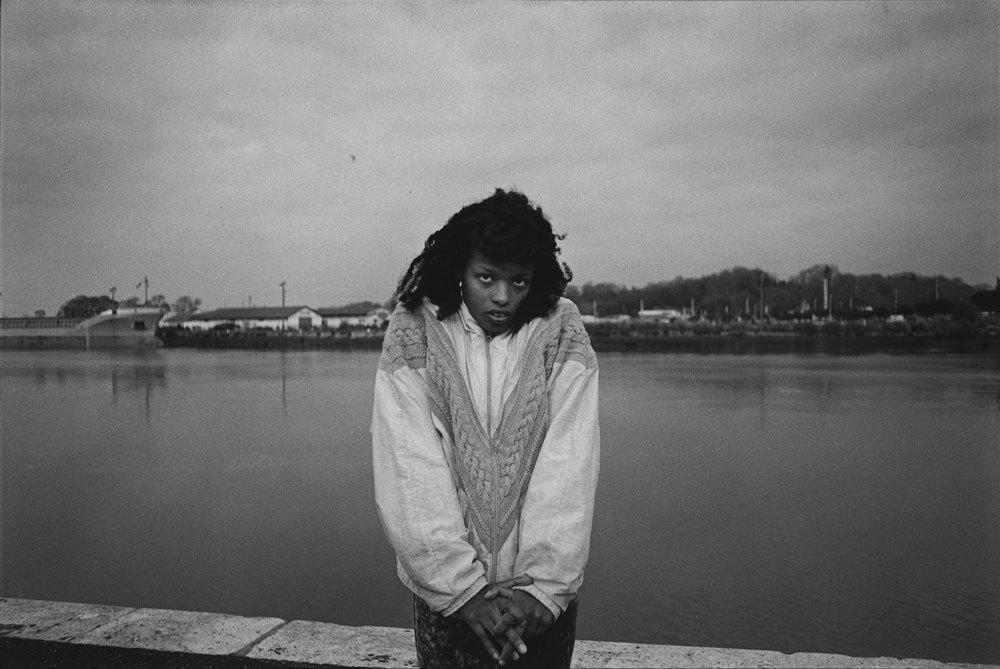
Noellyn Diakhite, 18, L Terminus, Allons
Are you going to vote next May?
Yes. It’s important to go out and vote. I’m very politicized and we’re all masters of our own destiny. It’s everybody’s business and you can’t make fun of a bad government if you don’t vote. The moment you take a position is the moment you have more control of your life.
Who are you going to vote for?
For Mélenchon. It’s a gamble, a long way from neo-liberalism and its spiral of doom.
Are you an activist on a day-to-day basis?
I like to concern myself with the world surrounding me, the proletariat, by virtue of my Franco-Martinico-Senegalese heritage and because I am exposed to people in difficult, non-conformist situations. Being interested in helping other people, politics is the least you can do.
What’s it like being 18 in France?
You can’t make generalizations about what it’s like being 18 in France. There’s 65 million of us and each of us are living differently from day-to-day. What matters to me is a mix of loads of things: actions, direction, questions, and struggles.
What’s the best way in 2017 to revolt, to get involved?
To live. The act of being without being denied, not setting limits on yourself and getting ahead is already an up-yours to society, to the system. To all those who thought you’d never amount to anything. To get ahead by yourself, to cultivate your own humanity is a very beautiful form of revolution of its own.
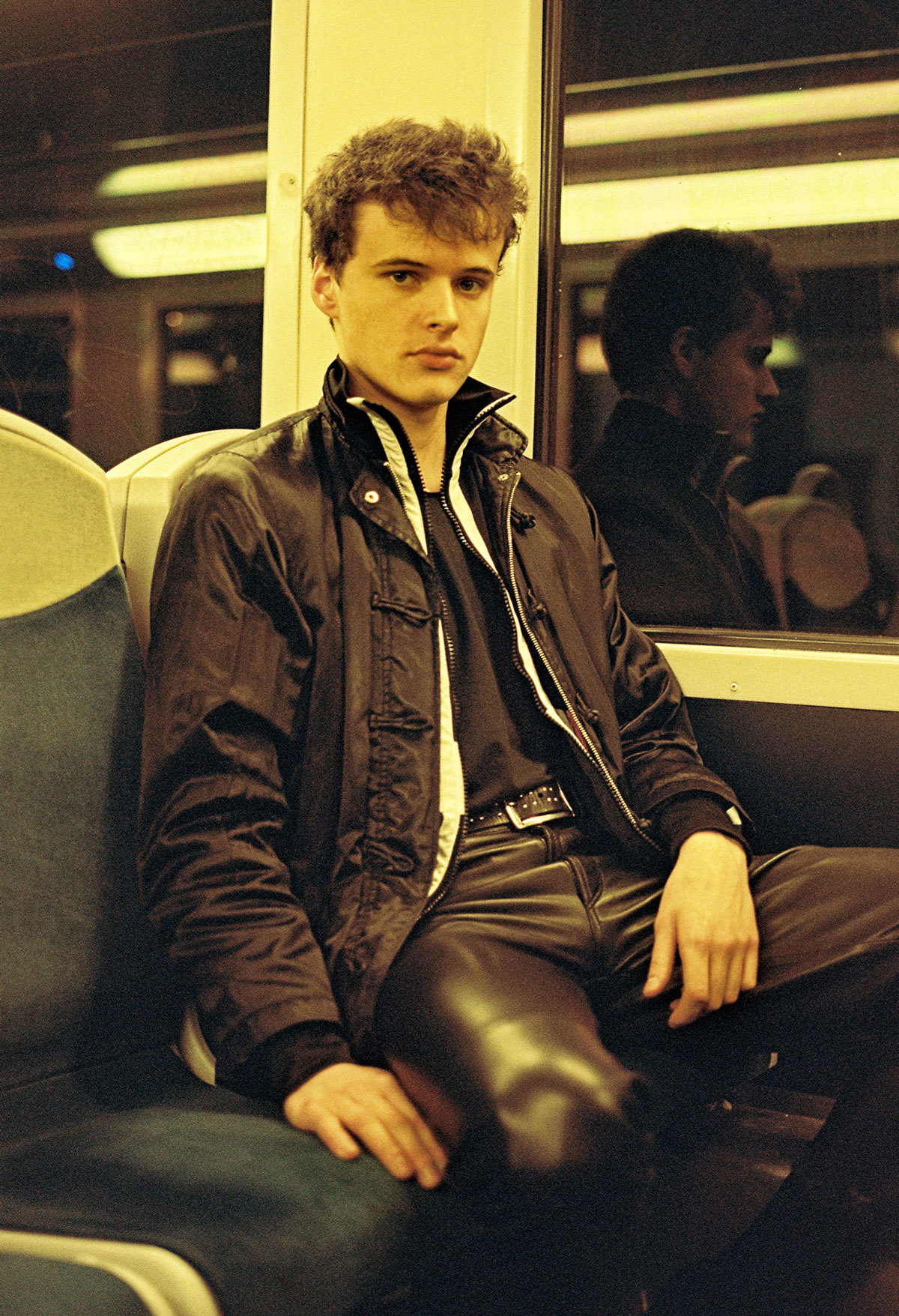
Samuel Fasse, 21, art director, Paris
Do politics interest you?
Yes, very much. Despite general disinterest and what the youth think about politics and what it represents, I continue to be interested in it. It’s all about managing to reinstate a dialogue which seems broken, all the while new media, platforms, and meetings multiply.
Will you be at the ballots in May?
I will vote, but if I find myself once again in front of a second Fillon/Le Pen race, then no. I don’t want to surf on the wave of a useless vote. Politics of “less bad” has had its day.
What are the problems facing your generation in your eyes?
The situation for my generation, just as it was for those who grew up just after the second World War, is: looking to the future is more and more difficult in view of our social and economic situation. I’ll be happy to at least have a roof over my head. But I’m staying confident. I think that it’s up to us to bring a certain idea of the future and to not wallow in smallness of spirit which only leads to pessimism. We have today more and more ways of being heard and not only through voting. It’s a chance and a responsibility to be taken.
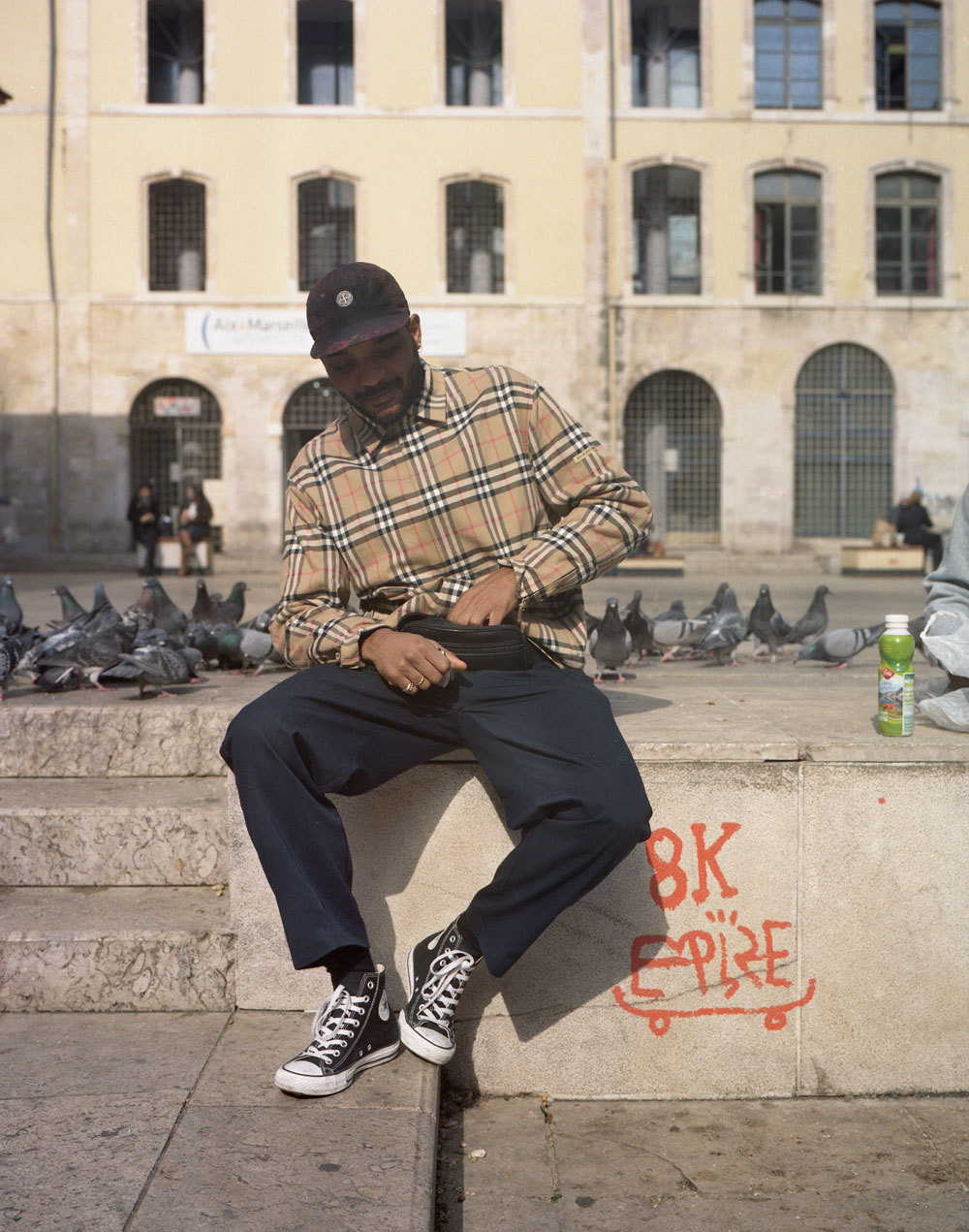
Yensi Lama, 27, skater and shop assistant, Marseille
What do you think of the elections at the moment?
It’s a bit whatever and it’s not a subject I wanna weigh in on.
What are some recent events that have caught your attention?
The Théo scandal in Paris, the fact that he was beaten up by the cops.
What are your thoughts about your generation?
It’s a generation which goes much faster in so far as everything is driven by the internet, Instagram, Facebook, Twitter. It takes quite a lot of effort to concentrate on things. Things these days get taken to the extreme and people find their place in those extremes.
If you could change one thing in France, what would it be?
Perhaps Racism. Even though I don’t see it in Marseille, being such a cosmopolitan city. All the different cultures and religions congregate and adapt to each other.
Credits
Photography by Nick Quine, Mélanie Bordas Aubiès, Jehane Mahmoud, Yves Drillet, Gabrielle Duplantier, Erick Faulkner, Daryl Changou, Brian Bunting, Tom de Peyret
Text Malou Briand Rautenberg
